
Explore our NEW Knowledge Base and Help Desk to find everything you need to attract, engage and convert talent with your Vennture website.
Discover More
Language is a funny thing and as a Linguistics graduate I'm particularly aware of this. A simple word can unite us and also completely divide us; look at the controversy around last year’s dictionary entry ‘selfie’. Language is dynamic and during my studies I was trained to take a more descriptive approach to how the words we use every day change, but it’s just too hard to let certain words slide. An example of this is annoying business jargon.
But before we get started on my (in no order of preference) list of annoying words and phrases let me introduce to you Google Books Ngram Viewer, the application I have used to create this blog. The viewer is a little piece of software that allows you to search a corpus of some 5.2 million books (although this number is always increasing) for pretty much anything. Currently you can search books from 1800-2008 in several different languages for anything from particular parts of speech to wildcards and more.
I am one for nice clear language and I’ve never understood how jargon of any kind helps this. Language is used for communicating and unless you’re a spy, you generally want what you say to be understood by as many people as possible without them having to ask you for clarification. Jargon is an excellent way to alienate people and create an exclusive membership – ‘you have to be a marketer to understand this’, ‘you have to be a lawyer to understand that'.
Here’s my take on the most annoying business terms and common phrases that I often hear in the office at Venn as well as elsewhere. To give my rant some back up, I’ve also included a little bit of science-y, graph-y stuff.
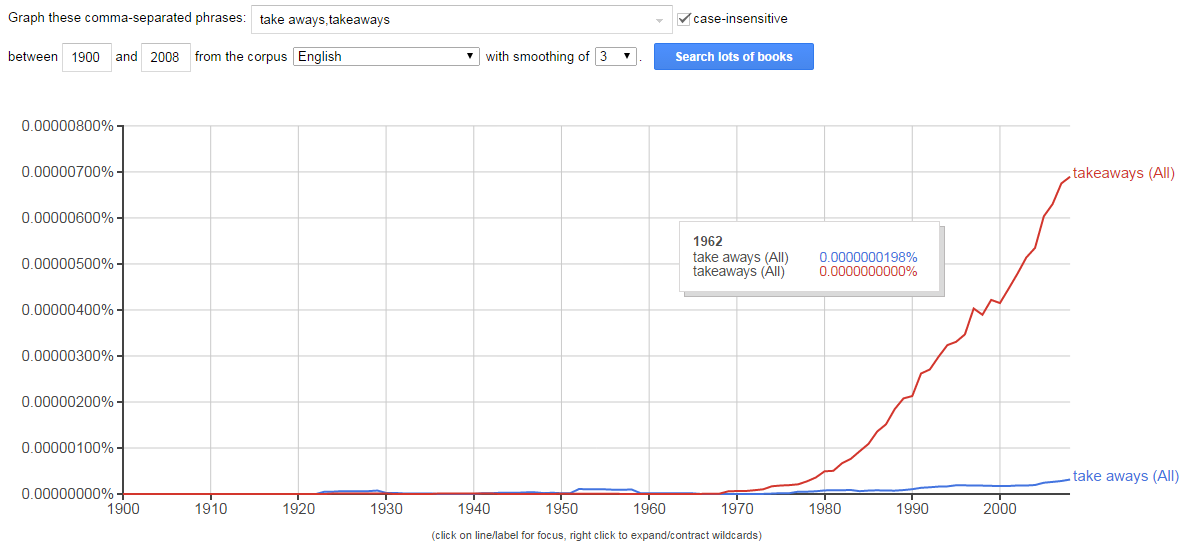
This one I particularly dislike only because I love food and it makes me hungry. What I did find interesting about this phrase is how our usage of it has changed over time – the Ngram Viewer allows you to see where the instances of the search term have occurred. With accuracy in mind I took a look at the top ten books where this phrase had appeared in two different time periods.
Between 1990-1996 8 out of 10 of the top results used takeaway to refer to foods but between 2005-2008, 8 out of 10 use takeaways to mean key learning points.
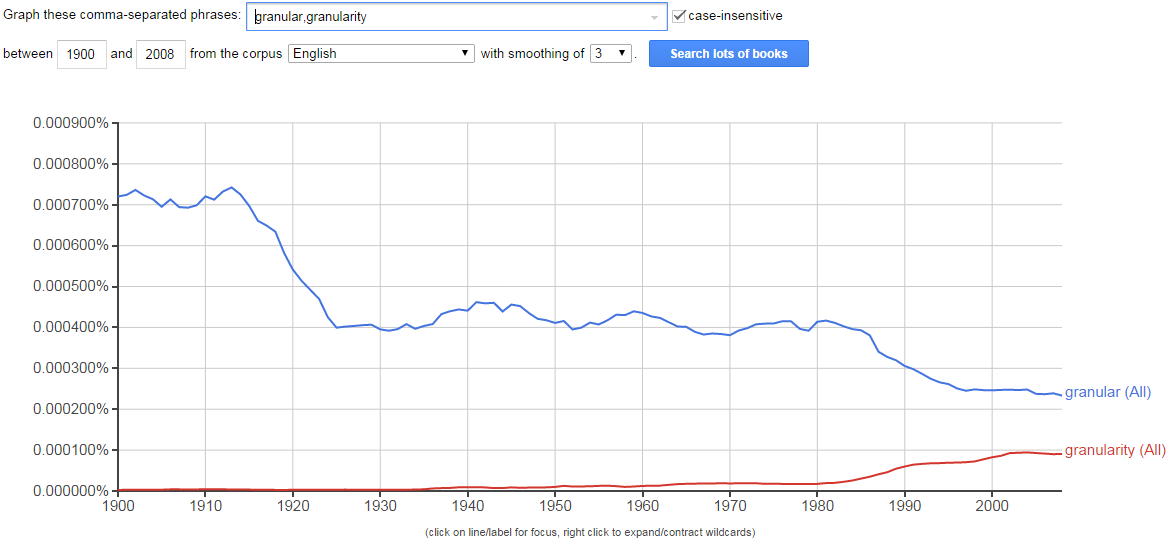
It’s interesting to see that granular is actually showing a downward trend, despite its overuse in our office particularly (you’d think we’d be able to make the graph trend upwards again). Granularity has shown a miniscule peak but now is starting to dip again. As to why this has happened, despite it being a word frequently targeted by jargon haters, I am not sure but having a look at the books that the words appear in, they show a similar pattern to ‘takeaways’ in that in the last few years the word has been adopted by marketers.
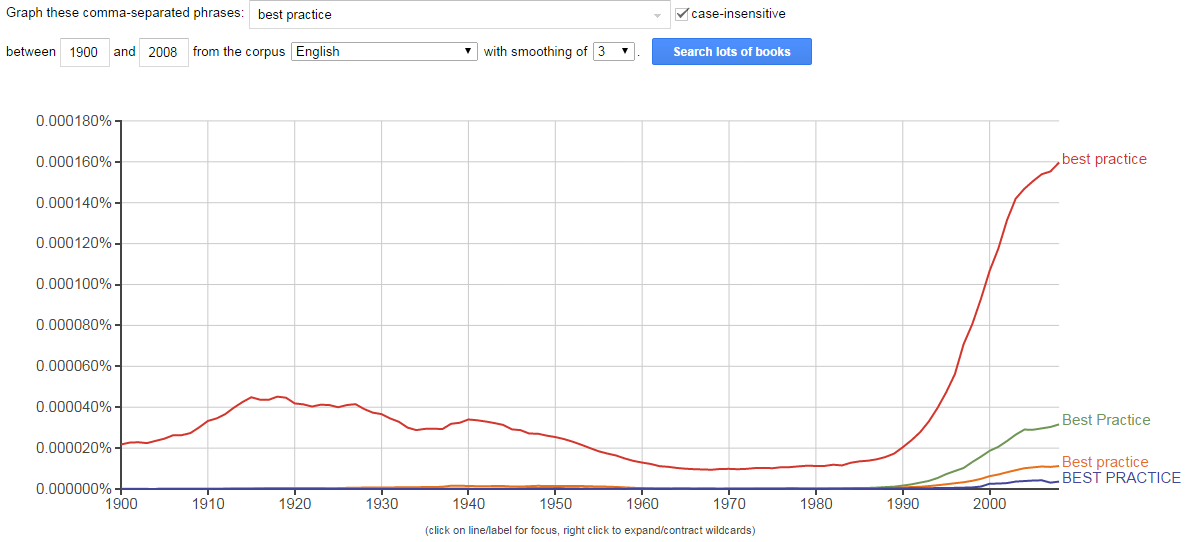
While there are worse words and phrases out there this one is pretty annoying, what is best practice? Just a way to make it look like you are doing the right thing to your clients? A useful coverall term that means you’re actually doing what you’re meant to be doing? It’s not common for businesses to advertise they follow worst practice.
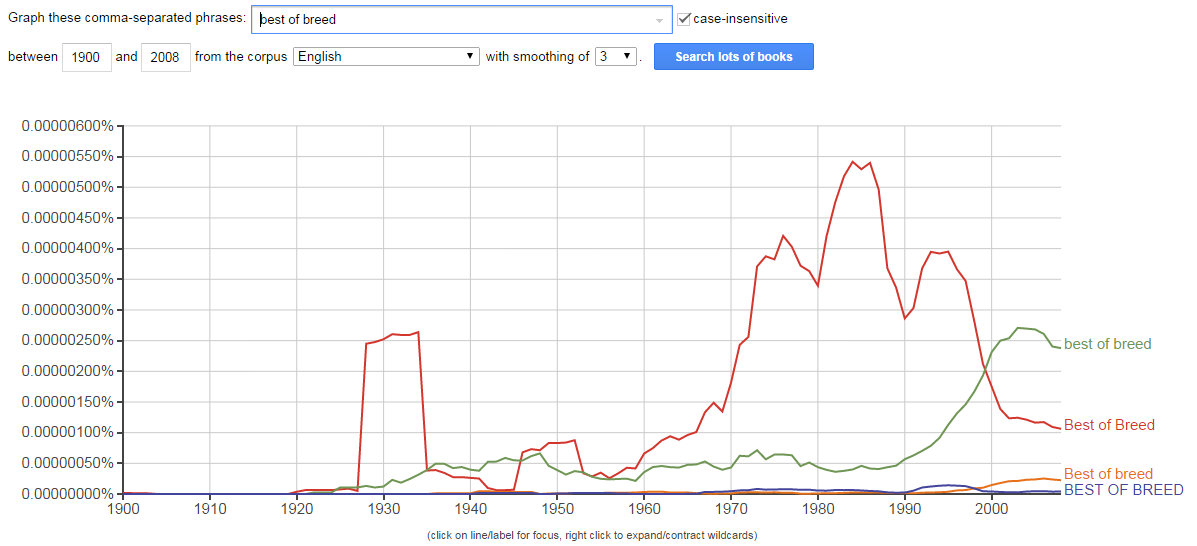
Here is one of those more annoying phrases I was on about. This is a particular bugbear of mine – I am not a breed and I am not a show dog in Crufts. Yes, we are the best at what we do, we’re top notch even, but as much as I love our canine friends I’d rather not be compared to them. This is why I am pleased to see an overall decline in its use in recent years.
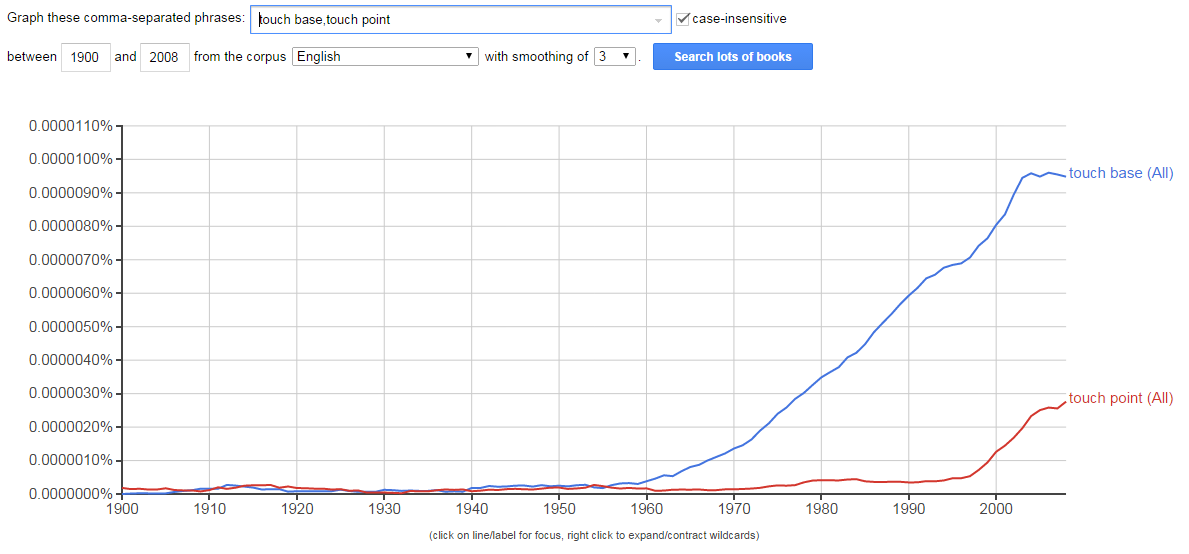
Every now and then we do need to stop and take stock of where we have got to but sometimes it can be all talk and no do. I don’t want to touch base until there is something to report, unless you’re making the tea. As for touch point, you’re talking about marketing channels reaching people, right? Why complicate things? Why take the personal, human element out of it?
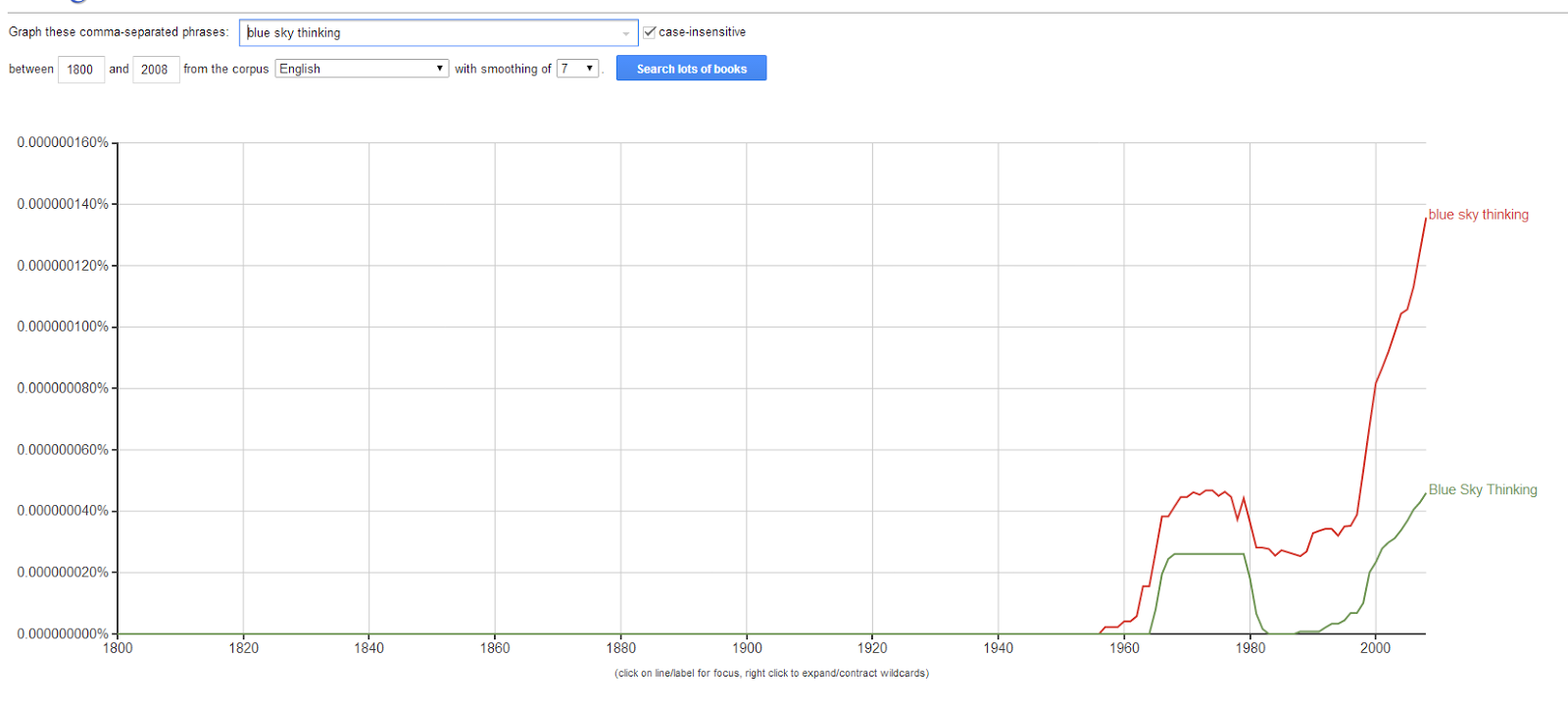
Wouldn’t it be lovely to float up there with the clouds, in the fresh air and peace and quiet? Yeah, that would be nice, except you can’t. This phrase possibly annoys me more annoying than ‘thinking outside the box’ as at least that phrase is within the realms of possibility. Imagination and baseless ideas are not the same thing.
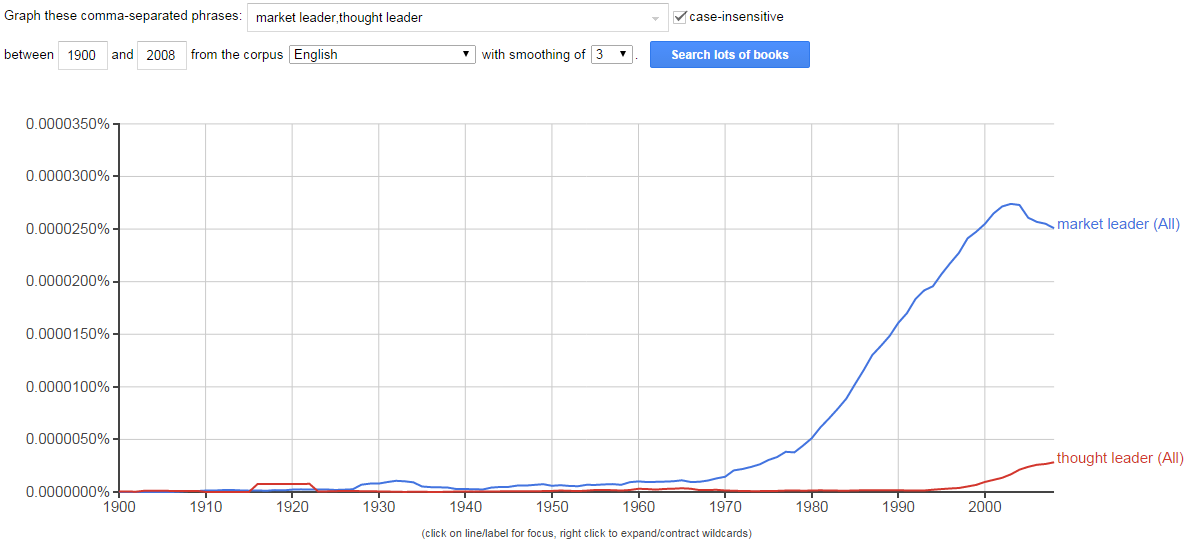
These are phrases you see bandied about quite regularly by people who are trying to be the thought or market leaders. Those who actually are leading their industry very rarely use these phrases because they don’t need to. If you truly are a thought leader you don’t need to tell everyone that you are, they already know.
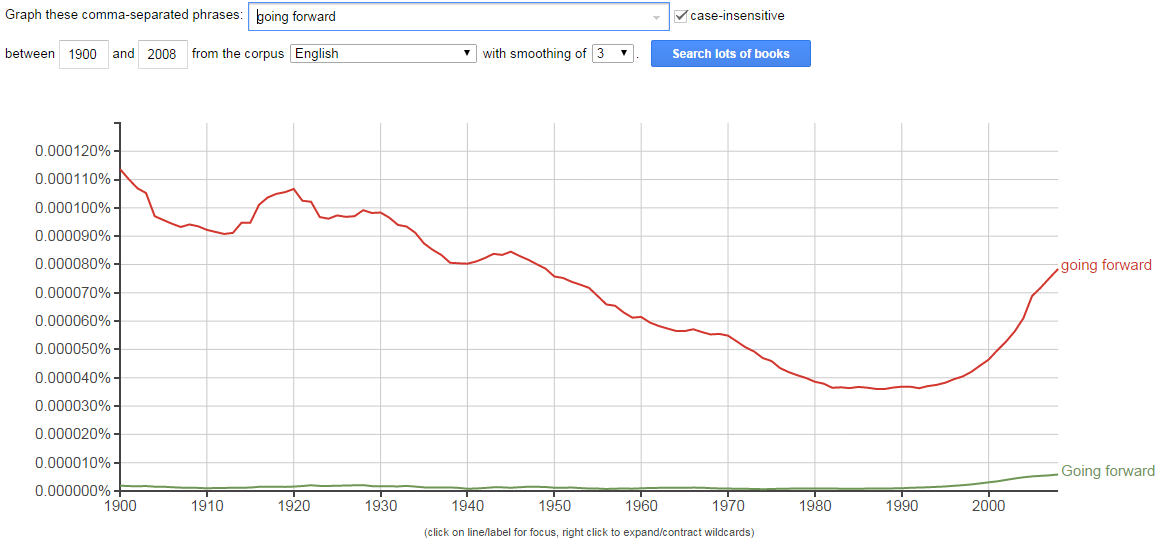
I’m not sure how I feel about this one, it’s not the most offensive term but equally there are so many other ways you can discuss the future and your plan of action. Why stick to using this rigid and overused phrase when the English language has a wealth of vocabulary at your disposal?
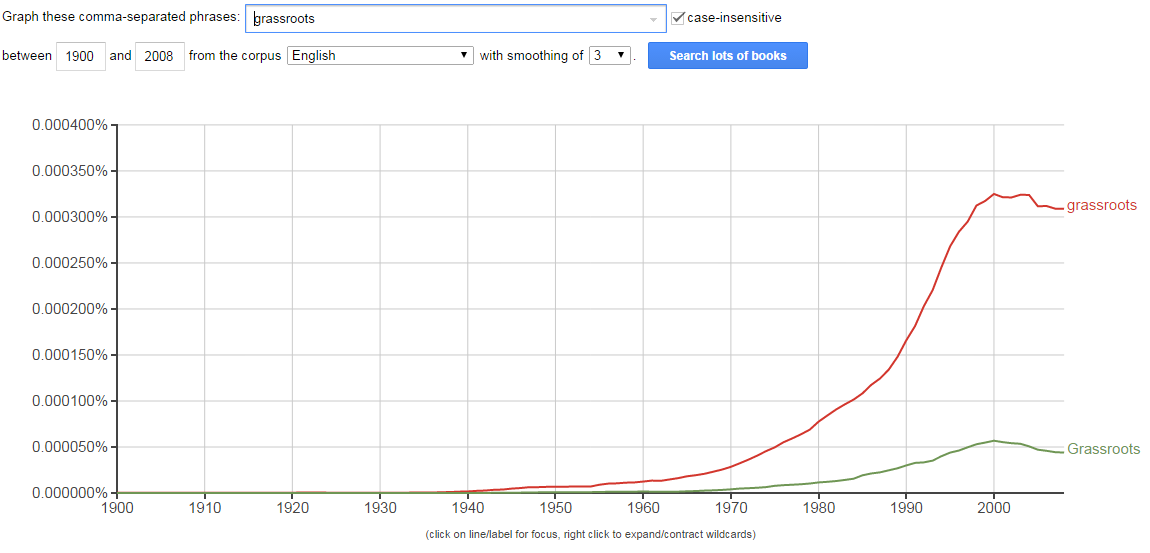
You know there are other plants with roots, yeah?
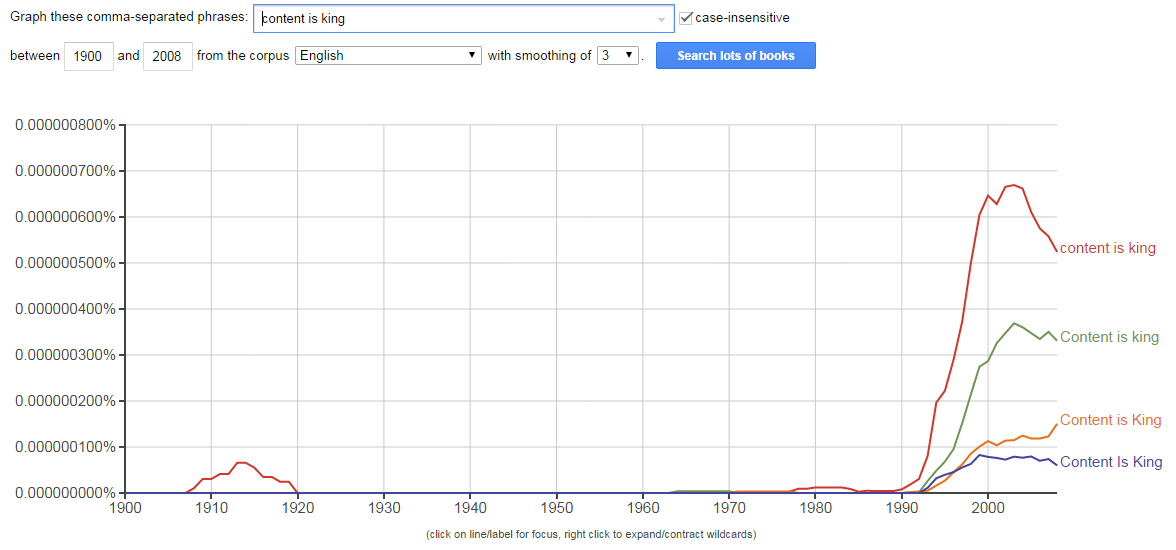
The mother of all annoying, overused phrases within digital: ‘content is king’. It may be pretty important, but there are so many other, more creative, ways of expressing this! If such value is placed upon content and originality, why does this term continue to be used so prominently?
That’s what it comes down to after all, originality. There’s a difference between towing the line because it’s what people understand and falling into clichés because you can’t think of an alternative. I urge you to rethink your use of any of the above terms. After all, you don’t want Google after you for unoriginal, duplicate content.